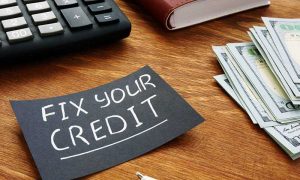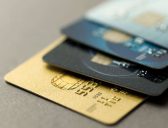A business loan is a great way to help your company grow. But what do you do if you have a bad credit score? Luckily, there are steps that you can take to increase the chances of getting approved for small business loans, which we will discuss here.
What do Lenders Consider Bad Credit?
Many of us have had a run-in with credit at some point in our lives. Maybe you missed a payment on a bill, perhaps you had an unexpected expense and couldn’t afford your regular monthly payments. Or perhaps you just made some poor financial decisions in the past. No matter the reason, if your credit score is low, it will likely affect your ability to get a business loan.
Bad credit can be anything from not having any debt at all (a good thing!) to having late payments on utility bills or rent. It could also include bankruptcy., which can limit your small business financing options. So, what do lenders consider bad credit? Basically, anything that would make you a high-risk borrower, such as having a low credit score or no credit history at all.
To get a loan from these places, you will need to do everything in your power to increase your chances of getting approved.
What is the Minimum Credit Score for a Small Business Loan?
There is no one-size-fits-all approach to an ideal business credit score for a business loan that opens doors for lenders to approve your application. The minimum credit score (FICO) required depends on several factors, including the size and purpose of the loan, how much collateral there is, and whether or not it’s an unsecured loan. Generally, you will need a minimum personal credit score of at least 600 to be approved for a small business loan from banks or credit unions.
Is it Possible to Get a Loan with no Credit Check?
Certainly! Traditional lenders look over your credit history to see how well you’ve handled debt in the past. If there are red flags, you won’t get the business loan. However, there are loan options if you are determined to be a business owner and can’t meet the minimum credit score requirements.
One of these loan options is a lending institution that doesn’t check your credit. Unfortunately, there is typically a big tradeoff in the way of high-interest rates when you go this route. In addition, these bad credit business lenders don’t normally accept applicants with scores under 500, and many require that borrowers have a minimum FICO score between 580 and 600.
Types of Business Loans for Poor Credit
There are a few different types of bad credit business loans that you can apply for if you have bad credit (629 or lower FICO). They include:
1. SBA loan
The Small Business Administration offers a variety of loan programs for businesses with bad credit, including the Microloan Program and the CDC/504 Loan Program.
2. Merchant cash advances
A merchant cash advance (MCA) is a short-term loan based on your future credit card sales. These loans are often unsecured, have high-interest rates and have no set repayment terms.
3. Business lines of credit
A business line of credit is similar to a personal line of credit, but it’s for your business. These loans are unsecured and typically have variable rates tied to an index like the prime rate or LIBOR.
4. Equipment loan
If you need to purchase equipment for your business, you can get a loan specifically for that. These loans are typically unsecured and have a shorter repayment term than traditional loans.
5. Microloans
These loans come from microlenders who offer small loans to business owners who traditional banks have turned down. However, the average loan amount is $35,000, and the interest rates are incredibly high. Therefore, it’s important to shop around for the best deal.
6. Peer-to-peer lending
Peer-to-peer lending is a relatively new concept that matches borrowers with investors willing to lend money. Instead of going through a bank, you can use your bad credit business loan application to match up with one or more lenders based on the amount you need and their rates.
7. Guarantor loans
These are unsecured loans where someone else co-signs the loan with you and guarantees to repay it if you can’t. Your guarantor must have good credit (a score of 700 or higher) and be willing to put their assets on the line.
8. Invoice financing or factoring
This option is another type of high-risk loan that allows businesses with solid revenues but low credit scores to get cash for unpaid invoices. The business sells its outstanding accounts receivable (A/R) at a discount.
9. Business credit cards
A business credit card will charge a steep APR, but it’s an option if you have bad credit and need some quick cash. Compared with other loans for business owners with no or poor credit, the rates on these cards are typically lower.
10. Crowdfunding
Crowdfunding is a way to raise money from a large number of people, typically through the internet. Some crowdfunding platforms specialize in loans for business owners with bad credit.
How to Get a Small Business Loan with Bad Credit
As you can see, if you have a bad business credit score, there are options to get a small business loan. Here are a few tips and ideas to use when you are ready to do it:
- Make sure you understand the terms of the loan before you sign anything. This includes the interest rate, monthly payments and repayment schedule.
- Shop around for the best deal. Rates and terms can vary significantly from lender to lender, so it’s important to compare offers.
- Be prepared to put up collateral. Many lenders require collateral in case you can’t repay the loan. This could be your home, car or business assets.
- Have a solid business plan and financial statements ready. Lenders will want to see that you have a good understanding of your business and are able to repay the loan.
Start-Up Business Loans with Bad Credit
Start-ups with bad credit will most likely need to turn to online lenders to make their entrepreneurial dreams come true. These alternative lenders offer various types of business loans you can use to finance your start-up, including:
1. A business line of credit
Online lenders like Lendio offer flexible business lines of credit to start-ups with bad credit. With Lendio, you only need a 560 minimum credit score. Plus, you only pay interest on the funds you use. One of the cons of using Lendio is that you need $50,000 or more in annual revenue
2. Short-term loans
You can borrow up to $250K with one of these loans as long as you have a credit rating of 600. They may come with high-interest rates, but they’re a good option for a specific, one-time purchase. One of the alternative lenders that offers a short-term loan with bad credit is OnDeck.
3. Equipment loans
Currency Finance is a good alternative lender if you need equipment and have less than stellar credit. They often provide equipment financing in as little as 24 hours too. To qualify for equipment financing from Currency Finance, you’ll need at least $120,000 in annual revenue and a credit score of at least 620.
4. Microloans
Microloan companies offer loans for bad credit, often lending amounts as small as $500 to help entrepreneurs start or expand a business. Non-profit Accion offers microfinancing of up to $50,000 for small business owners whose minimum credit score is 550. The organization has over 50+ lending partners throughout the U.S., Canada, Mexico and Latin America.
5. Invoice Financing
Invoice factoring companies like FactorTrust and BlueVine offer quick cash in exchange for your unpaid customer invoices. This is a great option if you have a solid business but need some help covering your expenses until you get paid.
6. Merchant Cash Advance
With an MCA, small businesses with bad credit can get up to $100,000 in quick funding. If you need money fast and have good sales volume and steady revenue, this could be an option for your business. Companies that offer them include Payability and Kabbage.
7. Business Loans
If you have a less than stellar business credit score, then business financing from Rapid Financing might be the answer. RF looks at your overall business credit health and not just your credit score when determining if you qualify for financing. They’re one of the best companies to use for long-term financing, and funds can be available within hours after loan approval
8. Business Credit Cards
A business credit card is a good option for small businesses with bad credit as long as you use it responsibly. A few good options to consider are the American Express Plum Card, which has no annual fee and a 0% APR for the first nine months, or the Chase Ink Business Preferred Credit Card, which offers 80,000 bonus points if you spend $5000 in the first three months.
9. Personal Loans
A personal loan can be a good option for small businesses with a bad credit score, but it’s important to remember that you’ll likely have a higher interest rate. You can use a personal loan to cover any business expense, such as inventory or marketing costs.
10. Working Capital Loans
If you need quick cash to cover day-to-day expenses like payroll or rent, consider a working capital loan. These are easy to qualify for and typically come with low-interest rates. Credibly can be the best if you have a very poor credit score, as their working capital loans and MCAs have a minimum required credit score of only 500.
Don’t Let Bad Credit Stop You
As you can see, if you have less than perfect credit, there are options available to help get your business the money it needs. Looking into how to fix your credit is also a great option for your long-term financial health. Whether you need long-term financing for equipment or are looking for short-term cash flow until receivables catch up, these lenders can be an excellent source of funds for small businesses with bad credit. Bear in mind that loan payments can be a significant burden for businesses with tight cash flow, so it’s important to find a loan that has manageable payments and doesn’t charge exorbitant interest rates.
The post How to Get a Business Loan with Bad Credit appeared first on Small Business Trends
Original source: Small Business Trends






